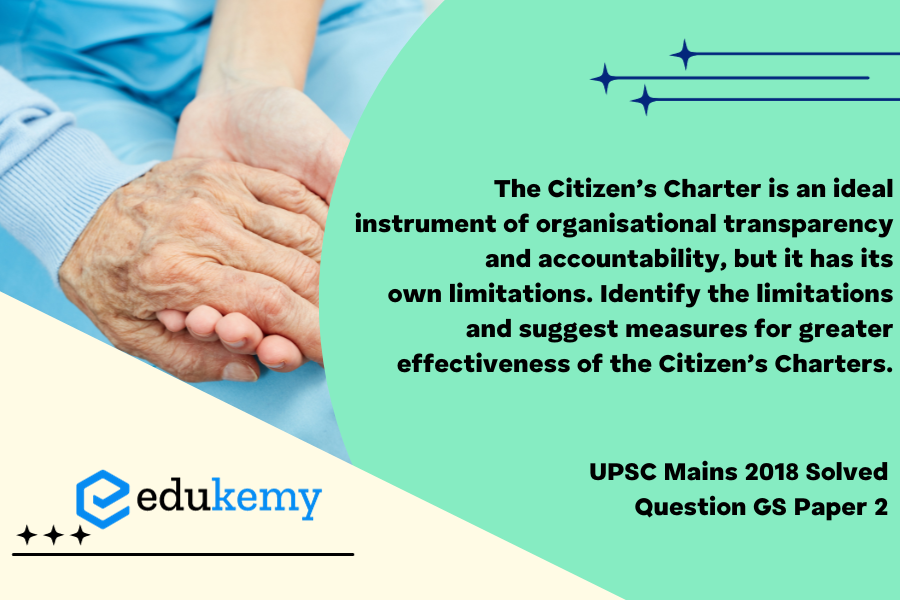The Citizen’s Charter, conceived as an instrument of organizational transparency and accountability, represents a commendable initiative aimed at enhancing citizen-centric governance. It serves as a mechanism for public service providers to explicitly outline their commitments, standards, and redressal mechanisms. However, despite its noble intent, the Citizen’s Charter is not without its limitations. One significant drawback lies in the lack of stringent enforcement mechanisms, rendering the Charter more aspirational than obligatory. Moreover, the absence of a comprehensive monitoring and evaluation framework often leads to inadequate implementation, contributing to a perception of tokenism rather than substantive change. Additionally, the Charter may face challenges in accommodating the diverse needs and expectations of citizens across different regions and socio-economic backgrounds.
Tag: Important aspects of governance, transparency and accountability, e-governance applications, models, successes, limitations, and potential; citizens charters, transparency & accountability and institutional and other measures.
Contents
Decoding the Question:
- In the Introduction, try to start your answer by defining Citizen’s Charter.
- In Body,
- Write the importance of the citizen charter.
- Discuss the Limitations of the charter.
- Suggest some measures to improve the citizen charter.
- In Conclusion, can write the importance of citizen charter.
Answer:
Citizens’ Charter is a voluntary declaration by a Government agency about its mandate, what to expect by way of services, and how to seek a remedy if something goes wrong. In doing so, it aims to realize the principles of transparency, accountability and responsiveness of good governance.
Importance of Citizen Charter
- It increases the participation of people in governance.
- It helps in reducing corruption by ensuring the accountability of public officers.
- It also makes the administration citizen-friendly and convenient.
- Citizen charter increases morality in administration.
- It raises efficiency and effectiveness in the public delivery system and reduces costs.
- It also prevents delay and red-tapism and promotes good governance.
Limitations:
- Devoid of Participatory Approach in consulting stakeholders like the cutting edge staff and end–users in its formulation.
- Absence of critical information. When mentioned, measurable standards of delivery are rarely defined.
- Lack of Public Awareness among end-users about the commitments under Citizens’ Charter.
- Charters are rarely updated.
- Lack of adherence by organisation to their Citizens’ Charter since there is no mechanism to compensate the citizen if the organization defaults.
- The tendency to have a uniform Citizens’ Charter for all offices under the parent organization overlooks local issues.
- Citizens’ Charter has still not been adopted by all Ministries/Departments.
- Concerned staff were not adequately trained and sensitized about its spirit and content.
Way forward:
- There is a need for the revision of existing citizen charters to ensure that they meet all the critical parameters.
- A systematic consensus-based formulation of every citizen charter which is practical and whose commitments are achievable.
- There should be consultation with all stakeholders while formulation and orientation training to staff to the objective of Citizen Charter.
- There should be a large-scale publicity campaign to create awareness among people.
- The creation of a database on consumer grievances and replication of best practices can improve its efficiency.
Citizen charter is important in ensuring good governance; urgent steps are needed to make it more effective for better delivery of services. Therefore, given the importance of Citizens’ Charters, urgent steps including those mentioned above need to be taken to ensure they are effective in achieving their objective.

In case you still have your doubts, contact us on 9811333901.
For UPSC Prelims Resources, Click here
For Daily Updates and Study Material:
Join our Telegram Channel – Edukemy for IAS
- 1. Learn through Videos – here
- 2. Be Exam Ready by Practicing Daily MCQs – here
- 3. Daily Newsletter – Get all your Current Affairs Covered – here
- 4. Mains Answer Writing Practice – here


